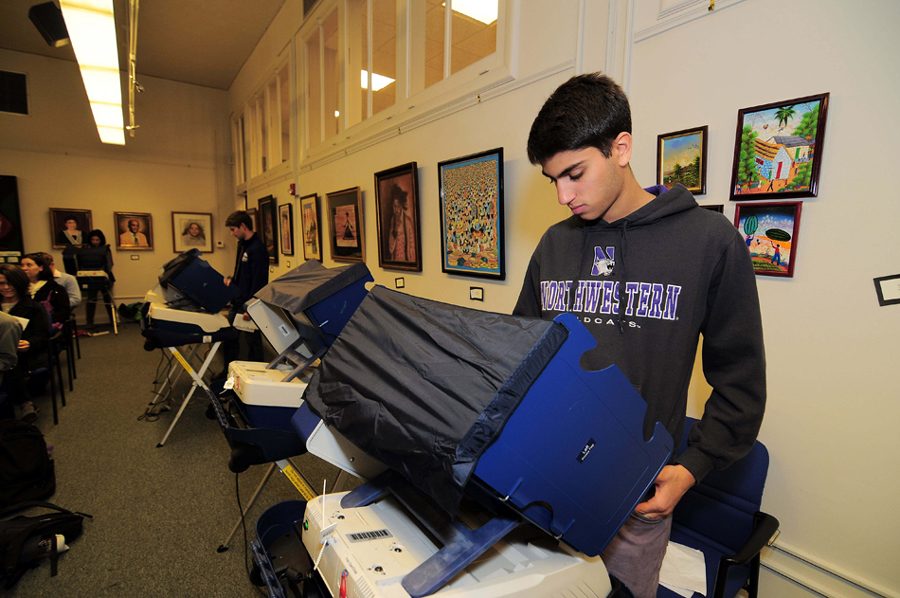Illinois improves election security for 2020 election
Less than a month out from the November election, city officials and local organizations encourage residents to vote early.
October 3, 2019
Following widespread foreign interference in the 2016 election, cities and counties across the United States — including Cook County — are actively working toward preventing election security breaches in preparation for the 2020 presidential election.
According to the Senate Intelligence Committee, Russian actors compromised the personal information of 76,000 Illinois voters in 2016. Still, the Illinois State Board of Elections found no data was “added, changed, or deleted” in the voter registration system, according to a press release on Aug. 31, 2016. Vote counting, which is a separate process during an election, was not affected. Still, this incident brought election security to the forefront of the political conversation.
Three years later, cyber defense measures and election infrastructure are now primary concerns for some interest groups and voters.
Indivisible Evanston, the local branch of an interest group dedicated to stopping President Trump’s reelection, created an election integrity division in Feb. 2019. The division’s work involves promoting bills and methods to improve election security in the hopes that people will feel better about casting their vote.
“(We’re looking to) improve the level of confidence in the voting system so voters don’t wonder, ‘Does it matter what I’m doing?’ That would be awful,” said Bob Best, a co-leader of Indivisible Evanston. “I mean if everybody said it doesn’t make a difference, we wouldn’t have a democracy anymore.”
Confidence doesn’t just come from election security; it also comes from educating voters. Voters understanding their rights can increase voter turn-out, according to political science prof. Benjamin Page.
Illinois’ election process is decentralized, which makes it more secure, according to Illinois SBE. Each designated voting area has a county clerk or election panel that individually runs polls and tallies ballots. Therefore, hackers would have to target many election authorities to change a substantial number of votes.
Beyond that, Cook County has tried to increase protections and plans to buy new voting machines, with the hope to have them before the March primary, according to the Chicago Tribune. The new Cook County machines, however, will cost $31 million from the state budget.
Nationally, Senate Majority Leader Mitch McConnell announced the allocation of $250 million dollars toward national election security on Sept. 19.
Best said many argue that is not enough. Illinois alone would need $175 million dollars to replace election machines and materials, much of which is at least 15 years old.
Indivisible Evanston is also pushing for risk-limiting audits. Most audits compare vote tallies to either the votes of a random sample of some precincts or a random sample of votes counted by particular machines. No matter the margin of winning votes, the number in the sample is the same. Risk-limiting audits instead determine the number of ballots by the margin of victory. When the margin is bigger, fewer votes are reviewed, and when the margin is smaller, more votes are reviewed. This makes both a cost-effective audit and a higher confidence level, or reliability of accuracy, according to Best.
“The risk-limiting audit is a very fast, economical, and inexpensive way to check elections to uncover, not to prove if it’s right or wrong, but to uncover: is there a problem or not?” Best said.
No matter the voting system method, a risk-limiting audit could catch a discrepancy in votes in a sample and votes tallied.
All these measures ultimately are there to provide security and ensure voters their vote counts, Best said.
Distrust may be one of the reasons why voter turn-out in the U.S. is low, according to Best, but Cook County hopes voters feel safer participating in elections through improved measures.
Email: mlubbers@u.northwestern.edu


